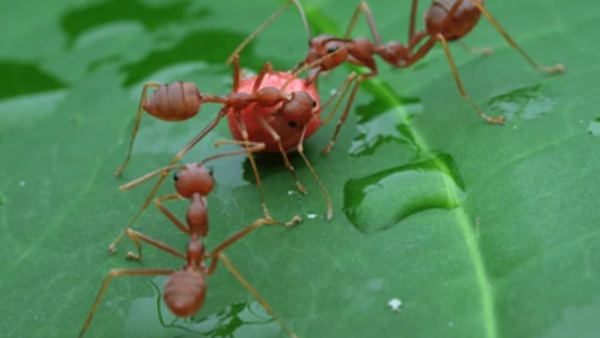ALBAWABA Ants, while small, can become a big nuisance when they invade your home. They enter in search of food, water, and shelter, often forming trails and colonies that can be difficult to eliminate. Fortunately, there are several effective methods to get rid of ants and prevent them from returning. Here are some proven strategies:
1. Identify the Ant Species
Understanding the type of ants you're dealing with is crucial, as different species require different approaches. Common household ants include carpenter ants, odorous house ants, and pavement ants. Identifying the species can help you choose the most effective treatment method.
2. Cleanliness is Key
- Keep Surfaces Clean: Wipe down countertops, sweep floors, and clean up spills immediately. Ants are attracted to food crumbs and sugary residues.
- Store Food Properly: Keep food in sealed containers and ensure pet food is stored securely.
- Take Out the Trash: Regularly empty garbage cans and use bins with tight-fitting lids.
3. Seal Entry Points
- Caulk Cracks and Crevices: Inspect your home for gaps around windows, doors, and foundations, and seal any cracks with caulk.
- Install Door Sweeps: Adding door sweeps to exterior doors can prevent ants from entering.
- Repair Screens: Ensure window and door screens are in good condition without holes.
4. Use Natural Remedies
- Vinegar Solution: Mix equal parts of vinegar and water in a spray bottle and use it to clean surfaces and spray directly on ants. Vinegar disrupts their scent trails.
- Lemon Juice: Like vinegar, lemon juice interferes with ants' scent trails. Apply it to entry points and areas where ants are seen.
- Cinnamon and Peppermint: Both spices are natural repellents. Sprinkle ground cinnamon or place cotton balls soaked in peppermint oil near entry points.
5. Commercial Ant Baits and Traps
- Ant Baits: These contain a slow-acting poison mixed with food that ants carry back to their colony, eventually killing the entire colony. Place baits along ant trails and near entry points.
- Ant Traps: Sticky traps can catch ants and prevent them from reaching food sources.
6. Chemical Insecticides
- Insecticidal Sprays: These can be used to kill ants on contact. Spray directly on visible ants and around entry points.
- Granular Insecticides: Sprinkle these around the perimeter of your home to create a barrier that ants won’t cross.
7. Professional Pest Control
If your ant problem is severe or persistent, it may be time to call in professional pest control. Exterminators can identify the species and use targeted treatments to eliminate ants and prevent future infestations.
8. Maintain a Dry Environment
- Fix Leaks: Ants are attracted to moisture. Repair any plumbing leaks and ensure gutters and downspouts are directing water away from your home.
- Dehumidifiers: Use dehumidifiers in damp areas like basements to reduce moisture levels.
9. Regular Maintenance
- Regular Inspections: Periodically check your home for signs of ants and take immediate action if you notice any.
- Outdoor Maintenance: Keep the perimeter of your home clear of debris, leaves, and wood piles that can attract ants.








